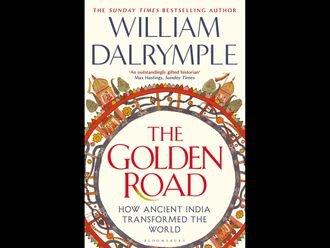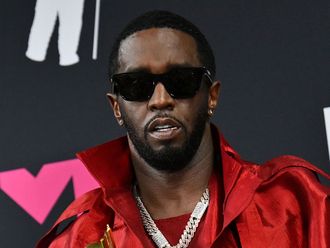Traditionally, it's D-Day for presidential campaigns —when nomination dreams are dashed and coronations occur. But Super Tuesday won't be that this year. Some 10 states will be holding contests today, offering up more delegates to be elected in a single night than in all the other contests to date.
But none of the four remaining Republican candidates will emerge with the nomination secured. That's because all 10 will dole out their delegates proportionately, as opposed to winner takes all. This increasingly bitter contest is expected to go on until at least late May, when Texas is scheduled to cast its ballots. So the Grand Old Party's fight to the death for the nomination will continue.
The only clear winner in the fight so far is President Barack Obama. In one corner is the long-time de facto front-runner, Mitt Romney. As the establishment candidate, the smart money is still on him to win, despite his narrow victory in his home state of Michigan. He is notably smart, steady, stiff and super-rich.
But, campaigning at the Daytona 500 racing track in Florida, he conspicuously failed to relate to the locals when he proclaimed: "I have some friends who are Nascar team owners" — only the latest in a similar string of gaffes.
The Beatles were right: money can't buy love, and even the front-runner's supporters seem ready to buy bumper stickers that read: ‘Reluctantly Romney'. They gain comfort from the fact that it is his turn in a party that has traditionally respected the rules of primogeniture.
Romney is expected to carry at least Vermont, Virginia and Massachusetts today. The problem, of course, is that the base of the Republican Party now resides in the former states of the Confederacy, and Romney has yet to win a state in the Deep South, while even the Midwest has been slow to rally behind him.
Slow and steady
Which brings us to the other corner in the GOP's fight, comprised of the rest of the Republican field — a motley crew competing to be the conservative alternative to Romney.
Their goal is not just to win the nomination but to stop Romney from collecting the 1,144 delegates necessary to clinch it before the Republicans' Tampa Bay convention in August. The current standard bearer is a social conservative, the former Pennsylvania senator Rick Santorum. Polls show him leading in Tennessee and Oklahoma, while Newt Gingrich has staked his campaign on winning his home state of Georgia.
Meanwhile, the 76-year-old libertarian congressman Ron Paul continues his tortoise-and-hare strategy — steadily racking up delegates despite having yet to win a single state outright. The biggest prize tonight is Ohio, the ‘Buckeye State', where Santorum and Romney are neck and neck in the polls. No Republican in more than a century has been elected president without winning Ohio, and its primary is considered a pivotal test of electability.
Santorum has the advantage of representing a neighbouring state in the senate for 12 years, confirming upon him a near-native understanding of the local culture and economy. Romney is responding with his stock weapons: endorsements and a commitment to carpet-bomb the airwaves with negative attack advertisements.
Romney is the most electable, but evangelicals and Tea Partiers desperately want somebody else to be the nominee, even if it is Santorum. They will enjoy the feeling of wind blowing through their hair as they go off the cliff.
Santorum has come to symbolise the resurgence of culture wars, such as the battle over contraception, that most Americans believed were largely resolved. On the opposite side of the Republican spectrum, Romney has come to symbolise the super-rich, out of touch and somewhat arrogant.
The result is that independent women voters have flocked to Obama in recent months, giving him a 53 per cent approval rating, while his Republican opponents struggle to get half that.
Today's primaries will be pivotal but won't determine who gets the nomination. Whether Republicans want to recognise it or not, it will be a product of polarisation: the more the candidates fight for the far-right vote, the less likely they will be able to pivot back to the centre to win the presidential election in November. Extremes are ultimately their own side's worst enemy.
John Avlon is senior columnist for Newsweek and The Daily Beast.









